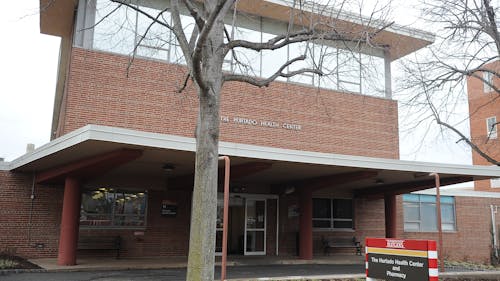Student contracts case of meningitis at Rutgers

The Rutgers community was alerted in an email yesterday afternoon of a student's diagnosis with bacterial meningitis.
The student was hospitalized last Monday, but is currently receiving treatment and recovering, according to the email. A response is being coordinated by Rutgers Student Health along with local, regional and state health officials. Individuals who were in close contact with the student are also being notified so that they can receive antibiotics as a preventative control.
"Meningococcal disease is treatable with antibiotics, but quick medical attention is extremely important," said Assistant Vice Chancellor for Health and Wellness Melodee Lasky, M.D., in the email.
Possible signs and symptoms of the disease include high fever, headache, stiff neck and a rash. The range of these symptoms developing is anywhere from several hours to 1 to 2 days.
"If you feel ill you should seek the care of a medical provider. Let your provider know about the recent case of meningitis on campus," Lasky said in the email.
The Rutgers community was encouraged to visit their health provider or any of the Rutgers Student Health Centers if they experienced symptoms or health concerns.
Meningococcal disease is any infection caused by the meningococcus bacteria, according to the New Jersey Department of Health. An infection the bacteria can cause is meningococcal meningitis, which is when the lining around the brain and spinal cord becomes inflamed.
The meningococcus bacteria is not as contagious as other bacteria that cause diseases like the common cold or flu, according to the email. It is also not spread by casual contact or breathing the same air where a person with the disease has been. Instead, meningococcal disease is typically transmitted through close personal contact such as coughing, sharing drinks, kissing or being in close proximity for an extended period of time.
The meningococcal vaccination is required for all undergraduate, graduate and transfer students who are new to the University and student housing, according to Rutgers Student Health.
The vaccines that prevent against meningococcus bacteria are not 100 percent effective, and individuals who receive the vaccine are still at risk of developing bacterial meningitis, according to the Centers for Disease Control and Prevention (CDC).
Rutgers Student Health is also urging students to pay more attention to personal hygiene practices, which includes washing their hands well, covering coughs and avoiding sharing drinks or utensils with other people.



